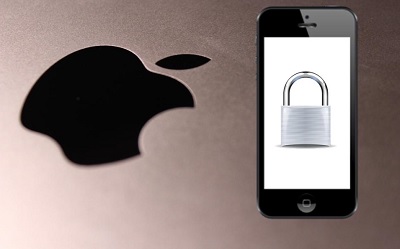An iOS 8 update has been pulled after new software caused dropped calls.
After releasing its newest version of its iOS 8 Apple software earlier this week, the electronics giant had to withdraw its mobile update when a great number of its iPhone customers experienced a loss in cellular service, preventing them from making calls with their smartphones.
Some customers even reported the Touch ID feature stopped working due to the update.
While most iPhone users who downloaded the update experienced a drop in calls, some complained that the Touch ID feature, the fingerprint reader, would also not work. In a statement, Apple said that it has received reports of these issues linked to the latest mobile operating system update, which is known as iOS 8.0.1. However, the company did say that customers can still use iOS 8 in spite of the issue.
Trudy Muller, a spokesperson for Apple said that “We are actively investigating these reports and will provide information as quickly as we can.” Muller added that “In the meantime, we have pulled back the iOS 8.0.1 update.”
Since its release, the iOS 8 Apple software has had more than one problem.
 According to data from analytics firm Crittercism Inc., iOS 8 causes apps to crash roughly 3.3% of the time. To put this into greater perspective, compared to last year’s version of iOS, the latest version crashes apps 67% more. Since its release last week, popular applications from Dropbox and Facebook have been failing regularly and the company had to delay the release of its HealthKit apps – the company’s much anticipated health and fitness-monitoring application – due to unexpected software bugs. Customers have also said that they have had to delete data such as apps, videos and photos from their phones to make space for the latest software.
According to data from analytics firm Crittercism Inc., iOS 8 causes apps to crash roughly 3.3% of the time. To put this into greater perspective, compared to last year’s version of iOS, the latest version crashes apps 67% more. Since its release last week, popular applications from Dropbox and Facebook have been failing regularly and the company had to delay the release of its HealthKit apps – the company’s much anticipated health and fitness-monitoring application – due to unexpected software bugs. Customers have also said that they have had to delete data such as apps, videos and photos from their phones to make space for the latest software.
Frank Gillett, a Forrester Research analyst said, “that’s the danger with all these updates: if you get it wrong, it goes wrong big, bad and fast.” Gillett added that “There’s a fundamental question of how it got out in the first place.”
iOS is the Apple software that powers all of the company’s mobile devices, including the iPhone, the iPad and the iPod Touch. It is estimated by Apple Inc. that as many as 46% of devices that connect to its App Store run iOS 8.

 Zdziarski also stated that there is no way for users to disable the services or prevent them from running. This means that there is no way for the user of an iPhone to know which computers have already been labeled as a trusted device by way of the backup process and these users cannot choose to stop future connections. He stated that “There’s no way to `unpair’ except to wipe your phone.” He then went about demonstrating that he was capable of extracting
Zdziarski also stated that there is no way for users to disable the services or prevent them from running. This means that there is no way for the user of an iPhone to know which computers have already been labeled as a trusted device by way of the backup process and these users cannot choose to stop future connections. He stated that “There’s no way to `unpair’ except to wipe your phone.” He then went about demonstrating that he was capable of extracting 